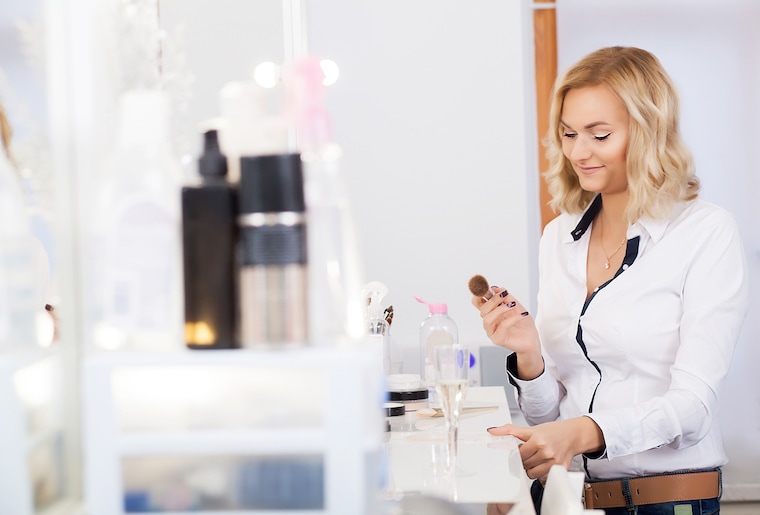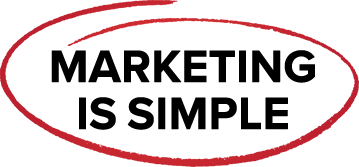How much do you need to start a makeup business
Starting a makeup business is an exciting and challenging venture. However, it requires careful planning and a significant amount of investment. Many factors need to be considered before starting a makeup business, such as the type of makeup products you want to sell, target market, and startup costs.
In this article, we will discuss the startup costs involved in starting a makeup business, including the essential expenses and optional costs. We will also provide tips on how to keep your startup costs down and how to fund your makeup business.

Essential Startup Costs
Product Inventory
The first essential startup cost of a makeup business is product inventory. Your makeup business will need a sufficient supply of makeup products to sell to your customers. Depending on the type of makeup products you want to sell, the inventory cost can range from a few thousand dollars to tens of thousands of dollars.
To keep your inventory costs down, consider starting with a small product line and gradually expanding as your business grows. You can also consider dropshipping or purchasing wholesale from makeup suppliers to save on costs.
Business Registration and Licensing
To start a makeup business, you need to register your business with your local government and obtain the necessary licenses and permits. The cost of business registration and licensing varies depending on your location and the type of business structure you choose.
You can register your business as a sole proprietorship, partnership, LLC, or corporation. Each business structure has its advantages and disadvantages, so it’s essential to do your research and choose the best structure for your makeup business.
Marketing and Advertising
Marketing and advertising are essential startup costs that will help you reach your target market and build your brand awareness. The cost of marketing and advertising varies depending on the channels you choose, such as social media, email marketing, influencer marketing, and paid advertising.
To keep your marketing and advertising costs down, consider starting with free marketing channels such as social media and email marketing. You can also collaborate with micro-influencers to promote your makeup products to their followers.
Optional Startup Costs
Website and E-commerce Platform
A website and e-commerce platform are optional startup costs that can help you reach a broader audience and increase your sales. The cost of a website and e-commerce platform varies depending on the features and functionality you need.
You can build a website yourself using website builders such as Wix, Squarespace, or WordPress. Alternatively, you can hire a web developer to build a custom website for your makeup business.
Packaging and Labeling
Packaging and labeling are optional startup costs that can help you create a unique brand identity and enhance the perceived value of your makeup products. The cost of packaging and labeling varies depending on the materials and design you choose.
To keep your packaging and labeling costs down, consider starting with simple and minimalistic designs. You can also use eco-friendly materials to appeal to environmentally conscious consumers.
Professional Photography
Professional photography is an optional startup cost that can help you showcase your makeup products in a visually appealing and professional manner. The cost of professional photography varies depending on the photographer and the number of products you need to shoot.
To keep your photography costs down, consider learning basic photography skills and using a smartphone camera to take product photos. You can also collaborate with aspiring photographers to build their portfolio and get professional-quality photos at a lower cost.
Funding Your Makeup Business
Now that we’ve discussed the essential and optional startup costs involved in starting a makeup business let’s talk about how to fund your business. Here are some funding options you can consider:
Personal Savings
Using your personal savings is the most straightforward and low-risk way to fund your makeup business. If you have enough savings to cover your startup costs, you won’t have to worry about debt or interest payments.
Small Business Loans
Small business loans are a popular funding option for startup businesses. You can apply for a small business loan from a bank or other lending institutions such as online lenders or credit unions. The terms and conditions of small business loans vary depending on the lender, so it’s essential to do your research and compare different loan options.
Crowdfunding
Crowdfunding is a funding option that involves raising money from a large number of people through an online platform. You can offer rewards or equity in your makeup business in exchange for funding.
Crowdfunding can be a great way to generate buzz and build a community around your makeup business. However, it requires a lot of effort and marketing to reach your funding goal.
Investors
Investors are individuals or companies that invest money in your makeup business in exchange for ownership or equity. You can find investors through networking events, angel investor groups, or online investment platforms.
Before seeking investors, it’s essential to have a solid business plan and a clear vision of your makeup business’s growth potential. Investors will want to see a return on their investment, so you need to be prepared to demonstrate how you plan to make money and grow your business.
Tips for Keeping Your Startup Costs Down
Starting a makeup business can be expensive, but there are ways to keep your startup costs down. Here are some tips to help you save money:
Start Small
Starting with a small product line and gradually expanding as your business grows is a smart way to keep your inventory costs down. You can also focus on a specific niche or target market to reduce the number of products you need to sell.
Use Free Marketing Channels
Social media and email marketing are free marketing channels that can help you reach your target market and build your brand awareness. By creating engaging and valuable content, you can attract and retain customers without spending a lot of money on advertising.
DIY When Possible
Learning basic skills such as photography, graphic design, and website building can save you a lot of money in the long run. By DIYing certain tasks, you can avoid hiring professionals and invest that money back into your business.
Conclusion
Launching a successful makeup business takes more than just a dream and a passion for beauty. You need to dot your i’s and cross your t’s with careful planning, substantial investment, and plenty of elbow grease. But don’t let that scare you – with a little knowledge and some savvy strategies, you’ll be on your way to slaying the makeup game in no time. From budgeting and financing to creating a jaw-dropping business plan, there are plenty of steps you can take to ensure your makeup business is built to last. So why wait? Dive in, do your research, and get ready to make your mark on the beauty industry.
FAQ
The essential startup costs for starting a makeup business include product inventory, business registration and licensing, and marketing and advertising. Product inventory involves sourcing makeup products to sell to your customers, while business registration and licensing vary depending on your location and business structure. Marketing and advertising expenses vary depending on the channels you choose to promote your makeup business.
The cost of product inventory for a makeup business varies depending on the type and quantity of makeup products you want to sell. The startup inventory cost can range from a few thousand dollars to tens of thousands of dollars. To keep inventory costs down, consider starting with a small product line and gradually expanding as your business grows. You can also consider dropshipping or purchasing wholesale from makeup suppliers to save on costs.
The cost of business registration and licensing for a makeup business varies depending on your location and business structure. The cost of registering a business as a sole proprietorship is relatively low, while the cost of registering a corporation or LLC is higher. Additionally, you may need to obtain permits and licenses from your local government, which can also add to the cost of business registration.
The cost of marketing and advertising for a makeup business varies depending on the channels you choose, such as social media, email marketing, influencer marketing, and paid advertising. Social media and email marketing are free marketing channels that can help you reach your target market and build your brand awareness. Paid advertising can be expensive, and the cost varies depending on the platform, audience, and ad format.
To keep startup costs down for your makeup business, consider starting with a small product line and gradually expanding as your business grows. Use free marketing channels such as social media and email marketing to reach your target market and build your brand awareness. Learn basic skills such as photography, graphic design, and website building to avoid hiring professionals and invest that money back into your business. Additionally, consider dropshipping or purchasing wholesale from makeup suppliers to save on product inventory costs.

